Best AI Smart Assistants 2025: Buying Guide & What is Spatial Computing?
12 Jun 2025
0 Comments
Best AI Smart Assistants 2025: Buying Guide & What is Spatial Computing?
The rapid evolution of artificial intelligence (AI) and smart home technology has made AI smart assistants indispensable for modern living. As we move into 2025, the Consumer Electronics Show (CES) and social media platforms like X have spotlighted the latest advancements in AI-driven devices. This comprehensive buying guide ranks the best AI smart assistants for 2025, optimized for search terms like “best AI smart assistants 2025 buying guide” and “top smart home assistants CES 2025,” while also providing an educational overview of spatial computing, a transformative technology shaping the future of smart assistants. Whether you’re upgrading your smart home or exploring cutting-edge tech, this article covers everything you need to make an informed purchase.
Visit our YouTube channel for more updates & reviews: https://www.youtube.com/@SmartTechShopping
Best AI Smart Assistants for 2025: Buying Guide
AI smart assistants have evolved beyond simple voice commands, integrating advanced AI, 5G connectivity, and spatial computing to deliver seamless user experiences. Below, we rank the top 5 AI smart assistants for 2025, drawing from CES 2025 highlights and X user discussions. Each entry includes key features, pros, cons, and buying considerations to help you choose the best device for your needs, optimized for searches like “best AI smart home assistant 2025” and “top 5G smart assistants CES 2025.”
1. Amazon Alexa Echo Ultra (2025 Edition)
-
Best Amazon Alexa Echo Ultra 2025, top AI smart assistant CES 2025, Alexa Echo Ultra 5G smart home
-
Why It’s Top: Amazon’s Echo Ultra, unveiled at CES 2025, combines upgraded AI processing with spatial audio and 5G connectivity. X users praise its enhanced natural language processing, which handles complex queries with ease, making it a top contender for “best voice assistant for smart home 2025.”
-
Key Features:
-
Advanced AI powered by Amazon’s AZ3 chip
-
360° spatial audio for immersive sound
-
5G-enabled for low-latency smart home control
-
Integration with Alexa Skills and Matter protocol
-
Privacy-focused microphone mute and data encryption
-
-
Pros:
-
Exceptional voice recognition, even in noisy environments
-
Seamless integration with Amazon smart home devices
-
Affordable starting price (~$149.99)
-
-
Cons:
-
Limited offline functionality
-
Heavy reliance on Amazon ecosystem
-
-
Best For: Users invested in Amazon’s ecosystem seeking a versatile, budget-friendly AI assistant.
-
Buying Tip: Look for CES 2025 bundles that include smart plugs or bulbs for added value when searching for “Amazon Echo Ultra deals 2025.”
2. Google Gemini Nest Hub Pro
-
Search Terms: Google Nest Hub Pro 2025 review, best Google Gemini AI assistant 2025, top smart home hub CES 2025
-
Why It’s Trending: Google’s Nest Hub Pro, powered by the Gemini AI model, offers a sleek touchscreen interface and robust smart home control. X users highlight its ability to anticipate user needs, such as suggesting recipes based on pantry inventory, making it a favorite for “best AI smart home hub 2025.”
-
Key Features:
-
Gemini AI for contextual understanding and proactive suggestions
-
7-inch touchscreen with AR-enhanced visuals
-
5G connectivity for real-time updates
-
Compatibility with Google Home, Nest, and Matter devices
-
Built-in Thread and Zigbee support
-
-
Pros:
-
Intuitive interface for visual and voice interactions
-
Strong integration with Google services (e.g., Calendar, Maps)
-
Energy-efficient design
-
-
Cons:
-
Higher price point (~$249.99)
-
Limited third-party app support compared to Alexa
-
-
Best For: Google ecosystem users who value AI-driven personalization and smart home hub functionality.
-
Buying Tip: Check for discounts on Google’s official store for “Google Nest Hub Pro deals 2025.”
3. Apple Siri HomePod 3 with Spatial Computing
-
Apple HomePod 3 spatial computing 2025, best Siri smart assistant CES 2025, top AR smart home device 2025
-
Why It’s Trending: Apple’s HomePod 3 integrates spatial computing for immersive audio and AR-enhanced interactions, making it a standout at CES 2025. X users rave about its ability to project virtual interfaces for tasks like video calls or workouts, ideal for “best spatial computing smart assistant 2025.”
-
Key Features:
-
Spatial computing for 3D audio and AR visuals
-
Siri with improved contextual awareness
-
5G and Ultra-Wideband (UWB) for precise device tracking
-
Seamless integration with Apple HomeKit
-
Privacy-first design with on-device processing
-
-
Pros:
-
Unmatched audio quality with spatial sound
-
AR capabilities enhance user interaction
-
Strong privacy features
-
-
Cons:
-
Premium price (~$349.99)
-
Limited compatibility outside Apple ecosystem
-
-
Best For: Apple users seeking a premium AI assistant with spatial computing features.
-
Buying Tip: Look for Apple Store promotions or carrier bundles for “Apple HomePod 3 deals 2025.”
4. Microsoft Copilot Smart Display
-
: Microsoft Copilot Smart Display 2025, best productivity AI assistant 2025, top smart assistant for work CES 2025
-
Why It’s Trending: Microsoft’s Copilot Smart Display, launched at CES 2025, targets productivity-focused users with its AI-driven task management. X users highlight its integration with Microsoft 365 for seamless work-from-home setups, making it a top pick for “best AI assistant for professionals 2025.”
-
Key Features:
-
Copilot AI for task automation and meeting scheduling
-
10-inch touchscreen with 4K resolution
-
5G-enabled for cloud-based processing
-
Integration with Teams, Outlook, and Windows devices
-
Voice and gesture control
-
-
Pros:
-
Ideal for professionals and remote workers
-
High-resolution display for video calls
-
Cross-platform compatibility
-
-
Cons:
-
Steep learning curve for non-Microsoft users
-
Higher cost (~$299.99)
-
-
Best For: Professionals needing a productivity-focused AI assistant.
-
Buying Tip: Check Microsoft’s enterprise bundles for “Microsoft Copilot Smart Display discounts 2025.”
5. Samsung Bixby Galaxy Home Mini 2
-
Samsung Galaxy Home Mini 2 2025, best budget AI smart assistant 2025, top Bixby smart home device CES 2025
-
Why It’s Trending: Samsung’s Galaxy Home Mini 2 leverages Bixby’s improved AI and 5G connectivity for smart home control. X buzz emphasizes its compact design and integration with Samsung’s SmartThings ecosystem, perfect for “best budget smart assistant 2025.”
-
Key Features:
-
Bixby AI with enhanced multilingual support
-
Compact design with 360° audio
-
5G and Wi-Fi 6E for fast connectivity
-
SmartThings hub for controlling Samsung and third-party devices
-
Affordable price (~$99.99)
-
-
Pros:
-
Budget-friendly with robust features
-
Seamless Samsung device integration
-
Small footprint for any room
-
-
Cons:
-
Bixby lags behind Alexa and Siri in third-party app support
-
Limited AR capabilities
-
-
Best For: Budget-conscious users in the Samsung ecosystem looking for a compact AI assistant.
-
Buying Tip: Search for Samsung’s CES 2025 promotions for “Galaxy Home Mini 2 deals 2025.”
Buying Considerations for AI Smart Assistants in 2025
When choosing an AI smart assistant, consider these factors, optimized for searches like “how to choose AI smart assistant 2025”:
-
Ecosystem Compatibility: Ensure the assistant integrates with your existing devices (e.g., Amazon, Google, or Apple ecosystems).
-
AI Capabilities: Look for advanced features like contextual understanding, proactive suggestions, or spatial computing integration.
-
Connectivity: 5G-enabled assistants offer faster response times and better smart home control.
-
Price vs. Value: Balance your budget with desired features. For example, the Galaxy Home Mini 2 is ideal for budget buyers, while the Home Báo cáoPod 3 suits premium users.
-
Privacy: Opt for devices with on-device processing or robust encryption for “best privacy-focused smart assistant 2025.”
-
Use Case: Choose based on your primary needs—entertainment, productivity, or smart home control.
What is Spatial Computing? An Educational Overview
Spatial computing is a transformative technology that blends digital and physical environments, enabling computers to interact seamlessly with the real world. It combines augmented reality (AR), virtual reality (VR), mixed reality (MR), and advanced sensors to create immersive, context-aware experiences. Optimized for searches like “what is spatial computing 2025,” this technology allows devices to understand and manipulate 3D spaces, making interactions more natural and intuitive than traditional computing.
How Spatial Computing Works
Spatial computing relies on several key components:
-
Sensors: Cameras, LiDAR, and motion sensors map the physical environment in real time.
-
AI Processing: AI algorithms interpret spatial data to understand user movements, gestures, and surroundings.
-
AR/VR Displays: Devices like smart glasses or speakers project digital content (e.g., holograms, virtual interfaces) into the physical world.
-
Connectivity: 5G and Ultra-Wideband enable low-latency data transfer for real-time interactions. For example, the Apple HomePod 3 uses spatial computing to project AR interfaces for tasks like controlling smart home devices or displaying workout routines, ideal for “spatial computing smart home devices 2025.”
Applications in AI Smart Assistants
Spatial computing enhances AI smart assistants by enabling:
-
Immersive Audio: Devices like the HomePod 3 use spatial audio to create 3D soundscapes, enhancing music or video calls for “best spatial audio smart assistant 2025.”
-
AR Interactions: Assistants can project virtual interfaces, such as calendars or recipes, onto surfaces like tables or walls.
-
Contextual Awareness: Spatial computing allows assistants to understand room layouts, user positions, and gestures for precise responses.
-
Smart Home Control: Assistants can map devices in a room and control them based on proximity or user intent.
Why Spatial Computing Matters in 2025
At CES 2025, spatial computing was a key trend, with devices like the Apple HomePod 3 showcasing its potential. X discussions highlight its role in making smart assistants more intuitive and interactive, aligning with searches like “spatial computing trends CES 2025.” As 5G adoption grows, spatial computing will drive the next wave of smart home innovation, blending physical and digital worlds seamlessly.
Challenges and Future Outlook
-
Challenges: High costs, complex hardware requirements, and privacy concerns around constant environmental mapping.
-
Future Potential: By 2030, spatial computing could power fully immersive smart homes, where AI assistants anticipate needs based on real-time spatial data, such as adjusting lighting based on user movement or projecting virtual assistants in 3D space, relevant for “future of spatial computing in smart homes 2025.”
How AI Smart Assistants and Spatial Computing Converge
The best AI smart assistants of 2025, like the Apple HomePod 3 and Google Nest Hub Pro, are integrating spatial computing for enhanced functionality, optimized for “AI smart assistants with spatial computing 2025.” For example:
-
Immersive Control: The HomePod 3 uses spatial computing to project AR controls, allowing users to interact with smart home devices via gestures.
-
Proactive Assistance: Gemini-powered Nest Hub Pro leverages spatial data to suggest actions based on room context (e.g., dimming lights during a movie).
-
Enhanced Audio: Assistants like the Echo Ultra and HomePod 3 use spatial audio to create 360° soundscapes, improving entertainment experiences.
This convergence is transforming smart assistants from voice-only devices into multi-dimensional hubs that understand and interact with your physical environment.
Final Thoughts
The best AI smart assistants for 2025—Amazon Echo Ultra, Google Nest Hub Pro, Apple HomePod 3, Microsoft Copilot Smart Display, and Samsung Galaxy Home Mini 2—offer a range of features to suit different needs, from budget-friendly options to premium devices with spatial computing capabilities. When choosing, consider your ecosystem, budget, and desired features like 5G or AR integration, optimized for “how to choose the best AI smart assistant 2025.” Meanwhile, spatial computing is redefining how these assistants interact with users, blending digital and physical worlds for more intuitive experiences, perfect for “what is spatial computing in smart homes 2025.”
For the latest updates on AI smart assistants and emerging tech like spatial computing, follow X discussions and CES 2025 coverage. Which AI smart assistant are you most excited to try, and how do you envision spatial computing in your home? Share your thoughts below!





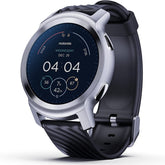
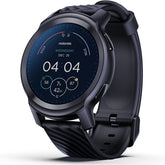
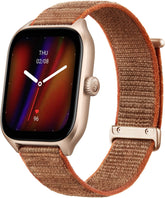

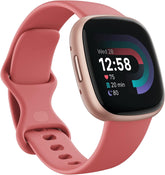
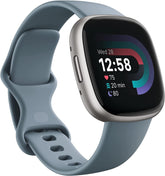


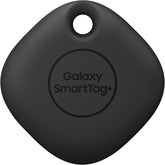
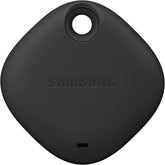
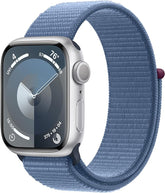

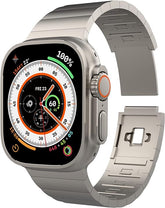
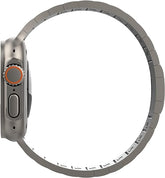
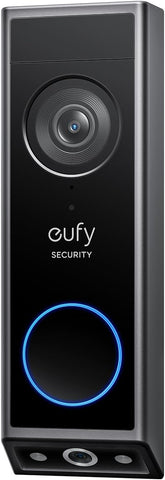



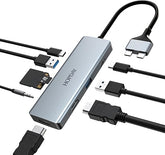

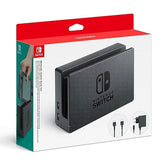
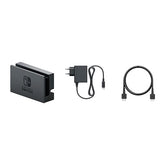
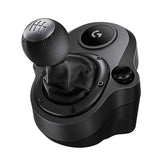
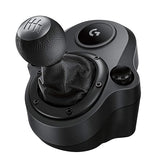
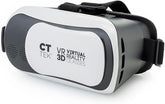
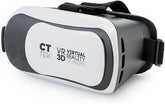


![["B0B1L87TMY"]](http://smarttechshopping.com/cdn/shop/products/7110BNil-dL._AC_SL1500_165x.jpg?v=1695449139)
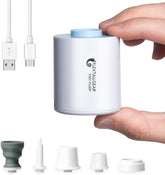
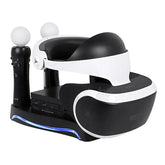





Leave a comment
Please note, comments need to be approved before they are published.